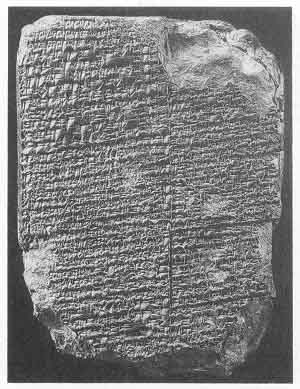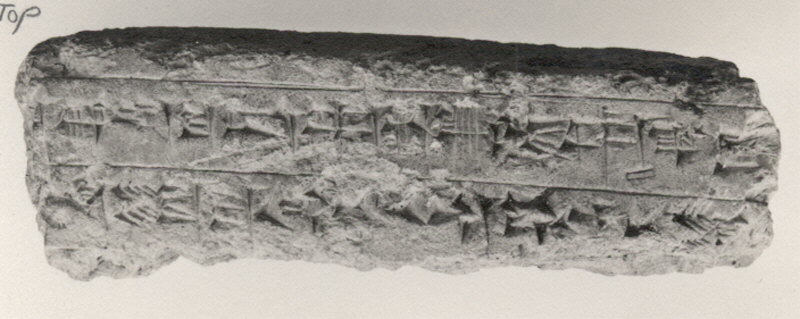The tablet I’m sharing today is an Akkadian telling of the conception of Nanna, god of the moon and of agriculture, who would go on to father of the sun god, Shamash (keep your eyes peeled for that one).
A later Babylonian tablet also exists telling of the conception of Sin (their name for the same god), and the two texts are said to be in very good agreement, which I imagine must have been a great help in the translation. It’s actually pretty amazing how many versions of some tales are known, copied by unknown scribes and students over the millennia. However, there are fragments missing in this earlier tablet. The name of the last of Nanna’s brothers to be conceived is therefore not known, while all of Sin’s three brothers are named.
Does that matter? To a god, perhaps yes. Gods are renowned for naming things and having them spring into existence. Might it work the other way around too? When their name is forgotten, do they lose something of their own existence?
Sometime collaborators, Terry Pratchett and Neil Gaiman, both touch on little known, or forgotten gods in their similarly named books Small Gods, and American Gods. The forgettable god in American Gods, an ephemeral being who is immediately forgotten by the protagonist, Shadow, can be argued to represent an amalgam of various gods of knowledge and wisdom, all linked to Mercury (like Nabu). My source for this in an answer on a Sci-Fi Q&A site, and it’s worth looking up for the details. For this nameless god, being forgotten seems not to be a concern. For Pratchett though, at least in the Discworld Pantheon, “As gods lose belief, they become weaker and smaller. Once there are no more believers, the god becomes a mere echo of a voice on the wind.”
On the topic of names, this Nanna is not to be confused with Nanna of Norse mythology. Although some have apparently tried to make the link, the well-respected antiquarian Hilda Ellis Davidson tersely stated that it “seems unlikely”. Bit of an understatement there, Hilda. If the name didn’t even survive the move from Sumerian to Akkadian in around 2000 BC, its reappearance almost three millennia later for the Vikings would take quite some explaining.

